How to Get Legal Psilocybin in Oregon

This post was authored by Sam Woolfe, an Odyssey writer covering mental health, psychedelics, and philosophy. Photo by everett mcintire on Unsplash.
In 2020, Oregonians voted to pass Measure 109, which legalized the “manufacture, delivery and administration” of psilocybin. This law allows anyone aged 21 or over to access psilocybin for personal use. This move was made possible because of increasing evidence about psilocybin’s safety and efficacy as a mental health treatment. High-quality phase 1 and 2 clinical trials have found that this psychedelic compound is effective at reducing depression and anxiety, including when such distress presents itself in life-threatening conditions.
But you may be wondering where exactly you can access legal psilocybin. In this article, we will be outlining where legal psilocybin is available in the state, as well as other crucial details that you should be aware of.
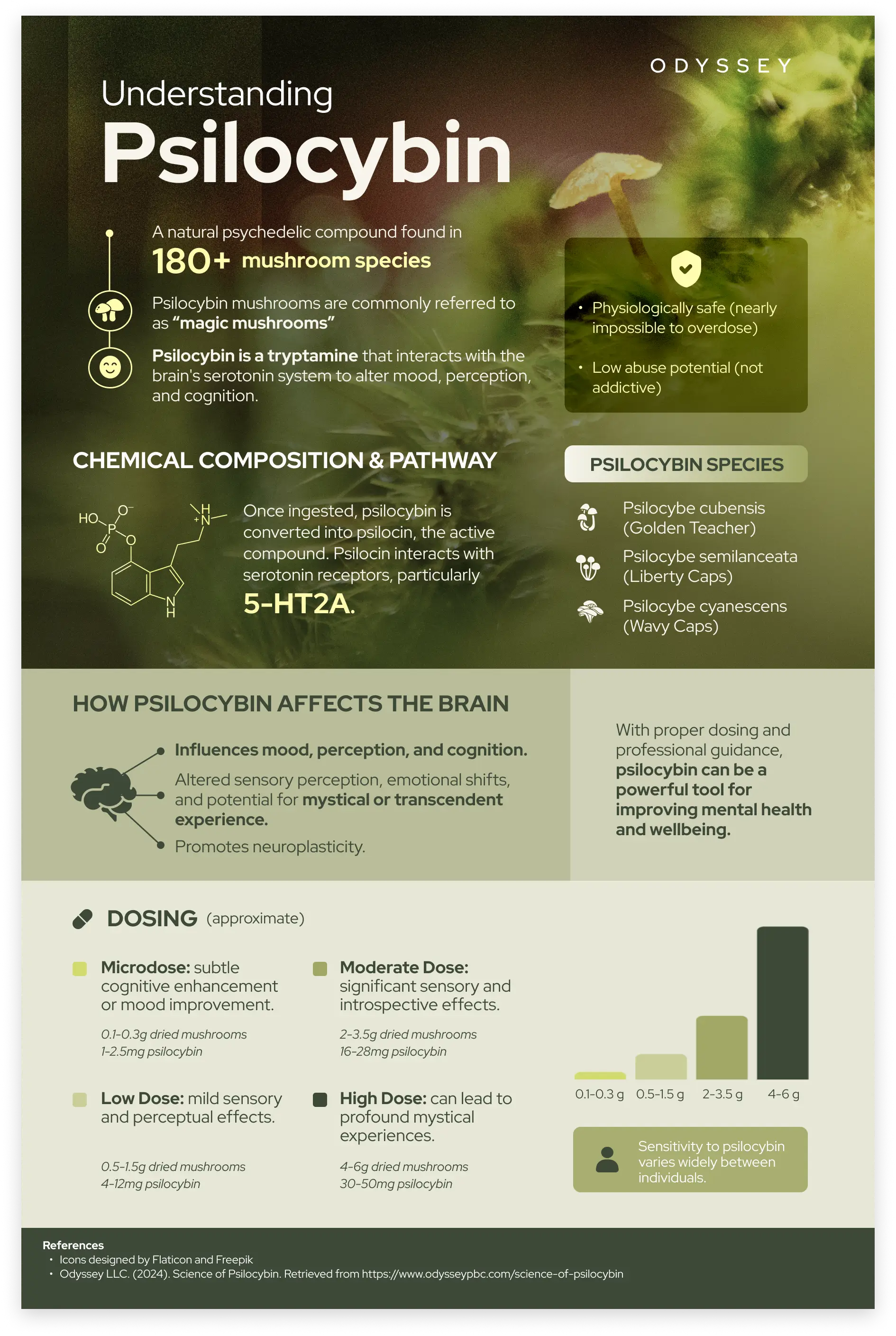
Legally Access Psilocybin at Licensed Oregon Service Centers
If you’re age 21 and over, you will be able to take psilocybin in certified service centers that need to obtain licensure before offering psychedelic services. The Oregon Health Authority (OHA) began taking license applications for service centers on January 2, 2023. In May, the OHA issued the first license, making EPIC Healing Eugene the first licensed psilocybin service center. (Access a regularly updated report detailing the status of submitted and approved license applications.)
These service centers offer psilocybin in a therapeutic context, and so they are set up to provide clients with a safe, comfortable, and supervised environment in which to take psilocybin. Odyssey can help people find a good-fit facilitator for individual psilocybin sessions at these centers, and we run our own legal group psilocybin retreats at partnered service centers.
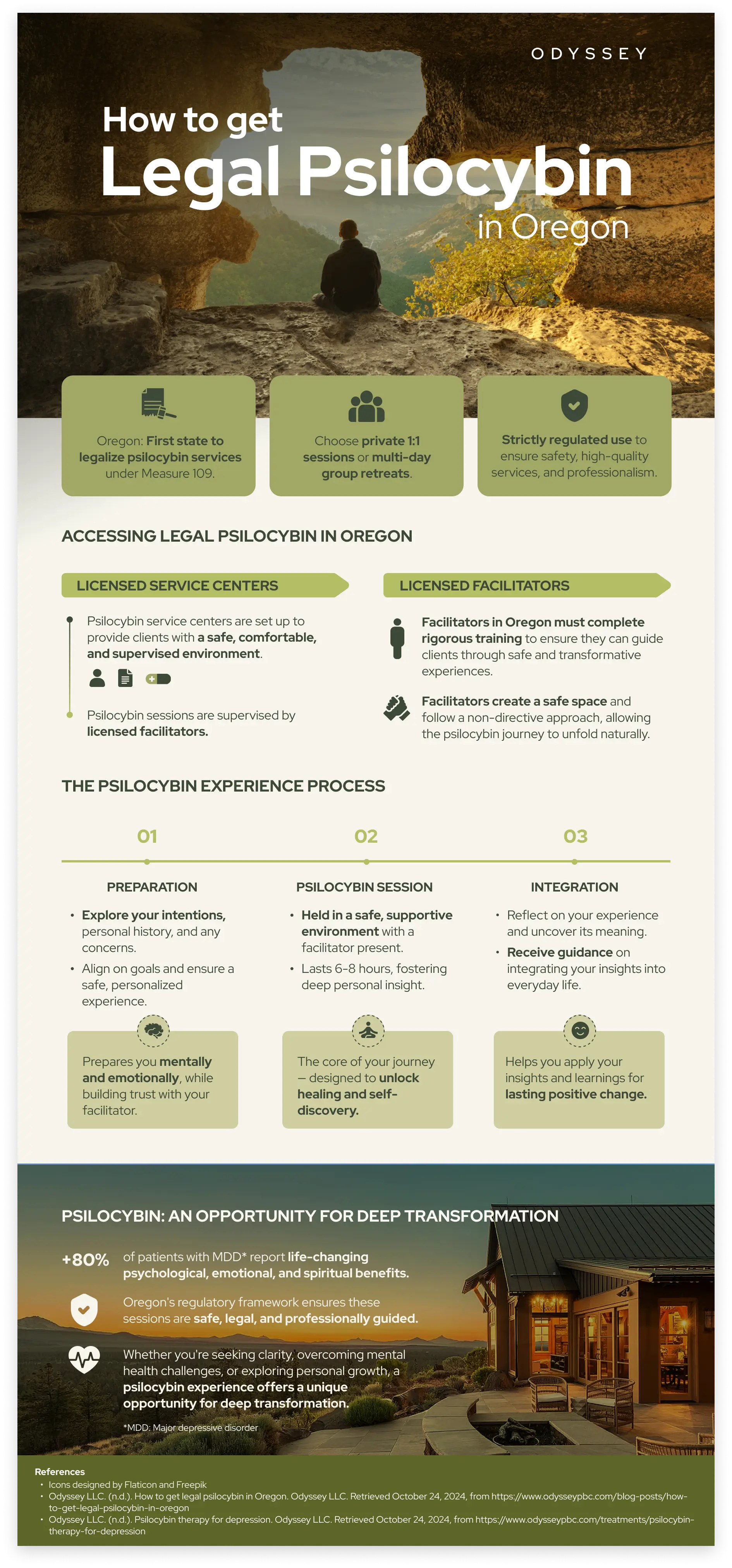
Licensed Facilitators Guide the Psilocybin Experience
When Measure 109 was passed, people assumed psilocybin would be offered in the way it is done in clinical trials – under the strict supervision of a licensed therapist. Since being passed, this bill has clarified that these sessions will be supervised by facilitators.
These facilitators are not licensed or trained like therapists are, and they are not meant to diagnose or treat mental health conditions (this would require additional licensure). Instead, the statute tells us that facilitators will take a non-directive approach to facilitating psilocybin sessions, which involves supporting a safe, client-led experience.
To become a licensed psilocybin facilitator in Oregon, you need to submit an application and meet the following requirements:
- Must be 21 years of age or older
- Must have a high school diploma (or equivalent)
- Must be a resident of Oregon
- Must complete a facilitator training program with a curriculum that has been approved by Oregon Psilocybin Services (OPS)
- Must pass the OPS Regulations Exam
- Must pass a criminal background check
- Must pay a license application fee
- Must pay an annual license fee
Many organizations offer training programs approved by OPS, such as Acadia, Alma Institute, Fluence, and InnerTrek. These programs will cover all the skills and knowledge bases that are necessary for becoming a licensed and effective psilocybin facilitator. The courses typically cover:
- The history and science of psychedelics
- Safety and ethics
- The core qualities of effective facilitators
- How to prepare clients
- How to conduct sessions
- How to assists clients in integration
- Group facilitation skills
- Understanding and promoting equity
- An in-person practicum (facilitating and observing psilocybin sessions)

Psilocybin Session Preparation and Experience
Once you decide on a licensed service center to use, you will first need to have a preparation session before you can take psilocybin. This includes:
- A client information form (what you can expect from the session)
- A review of an informed consent form
- A review of a Client Bill of Rights
- Safety and support planning
- Transportation planning
- An additional discussion with a licensed facilitator (which includes deciding on what dosage of psilocybin mushrooms to take: there is no minimum dose required, so some service centers also offer microdoses)
Preparatory sessions can be completed in person or virtually via video call. They are a crucial part of ensuring that clients are informed (as far as possible) about what a psilocybin session could be like and how it will be conducted with their interests and well-being in mind.
During the session itself, you will take the psilocybin (in the form and dosage you’ve decided) in a session room, under the supervision of a trained, licensed facilitator. The session room is comfortable and usually includes plants, artwork, a sofa or bed to lie on, music to listen to, and an eye mask to wear. The facilitator will sit by you during the session, providing emotional support and reassuring touch if requested (the use of touch is discussed with clients before the start of each session). The OHA states:
“The non-directive approach to facilitation is characterized by maintenance of a consistent, warm, and affirming disposition with clients, while avoiding giving clients direct advice or directly interpreting their statements or behaviors. The goal of nondirective facilitation is for clients to discover things about themselves for themselves with only minimal guidance from a facilitator. The pace and direction of facilitation are controlled by clients, while facilitators serve in a supportive role. An exception would be when safety is at stake, at which point facilitators shall become directive only in the service of safety.”
The integration stage involves post-session discussions with the facilitator. These are an opportunity to explore what came up for you during your sessions, with the aim of both making sense of this material and applying insights to your everyday life (e.g. your way of thinking, relationships, goals, and so on).
Psilocybin sessions, even when supervised, are not without risks. Odyssey acknowledges this and aims to provide the highest quality of care with trained facilitators to both mitigate these risks and create a safe container for clients should any troubling experiences arise. The integration sessions also act as an opportunity to make sense of – and learn from – difficult experiences, with personal healing and growth in mind.

Some Stipulations and Drawbacks
Before accessing legal psilocybin in Oregon, you should be aware that psilocybin is still illegal on a federal level, so you cannot have psilocybin shipped from Oregon to another state, nor can you obtain psilocybin mushrooms in Oregon and legally take them with you to another state. In addition, using a psilocybin service is not covered by insurance, so you’ll have to front all of the costs.
Moreover, while psilocybin has been shown to be effective in alleviating depression and anxiety, there is less evidence when it comes to severe trauma or other types of emotional distress. As part of eligibility criteria, service centers may exclude people with a personal or family history of schizophrenia and bipolar disorder. Clinical trials and psilocybin retreats have the same exclusion criteria. This is to reduce the risk of adverse effects (e.g. psychotic episodes and mania). Odyssey employs a similar screening process.
It's important to note that as this body of modern research emerges, it is built on top of a long history of usage in western therapeutic and indigenous healing contexts.
Odyssey draws on evidence-based ways of administering psilocybin, always with clients’ care, safety, and well-being in mind. Our team comes from Stanford and Harvard, reflecting the expertise that goes into the design and running of its individual sessions and group retreat experiences. In this way, clients can be adequately prepared for their sessions and get the most out of them. This is essential for valuable experiences that confer long-lasting benefits. Interested in knowing which experience fits you best? Get matched to the right experience for you.

.svg)
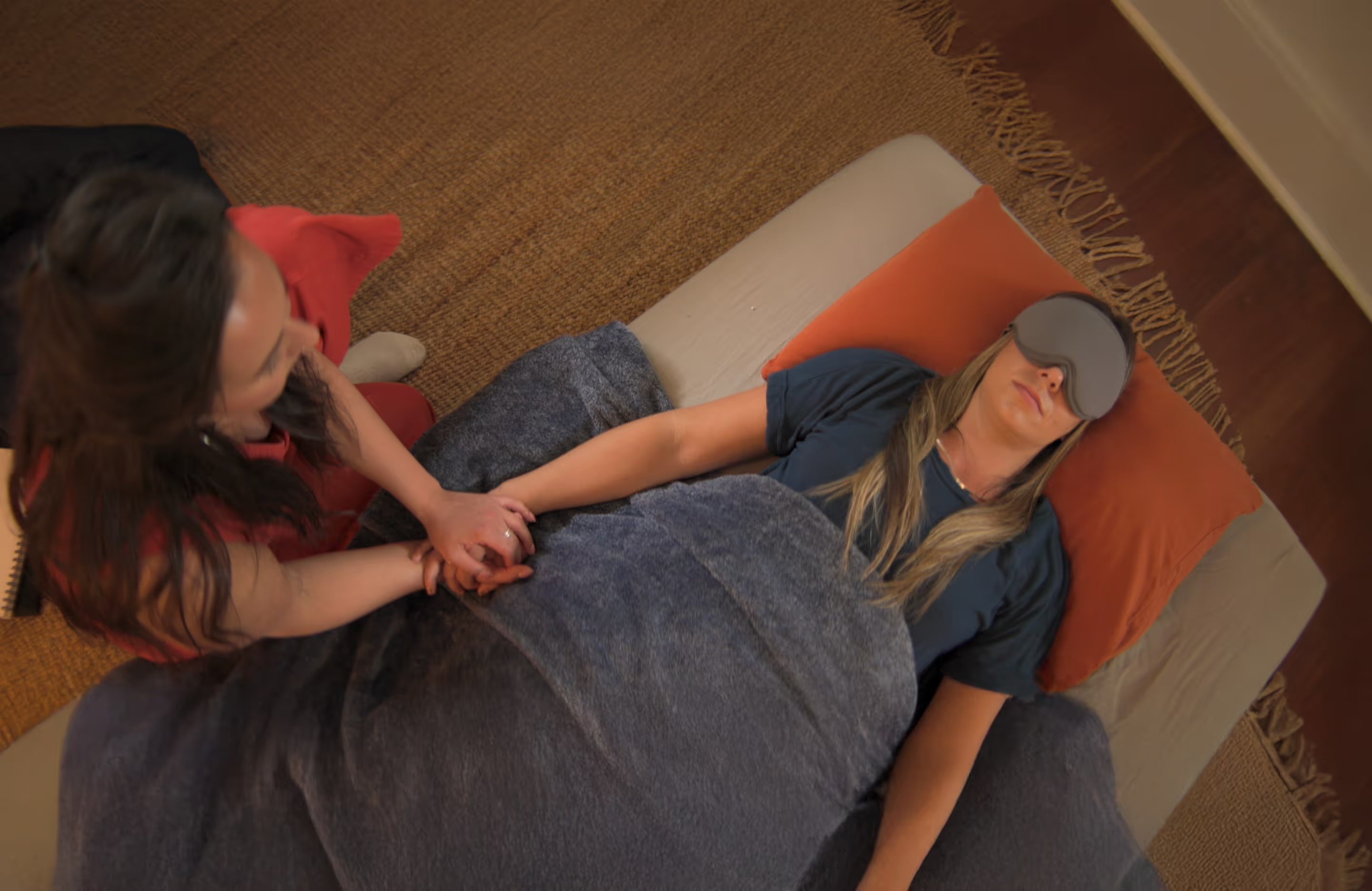
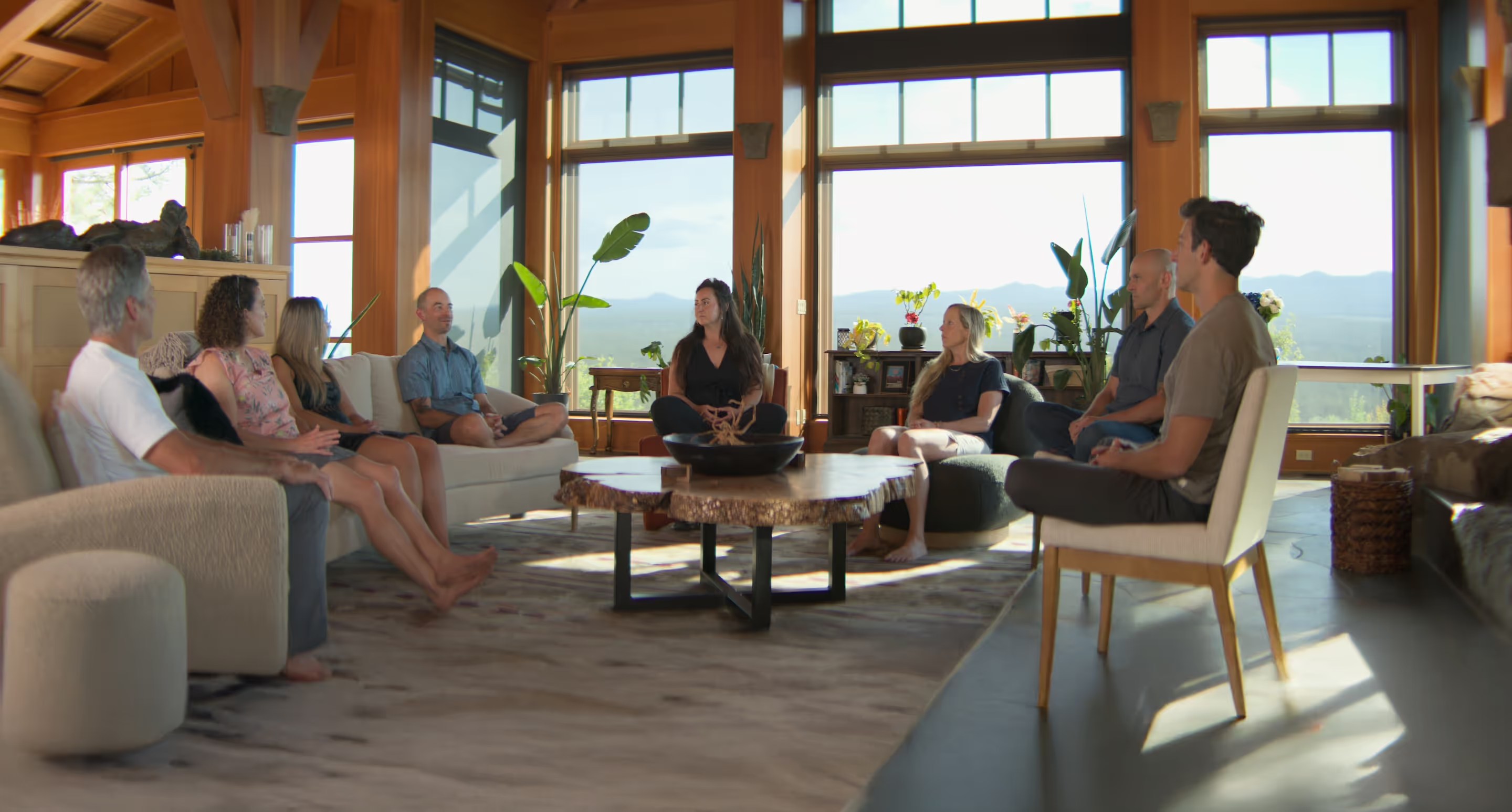


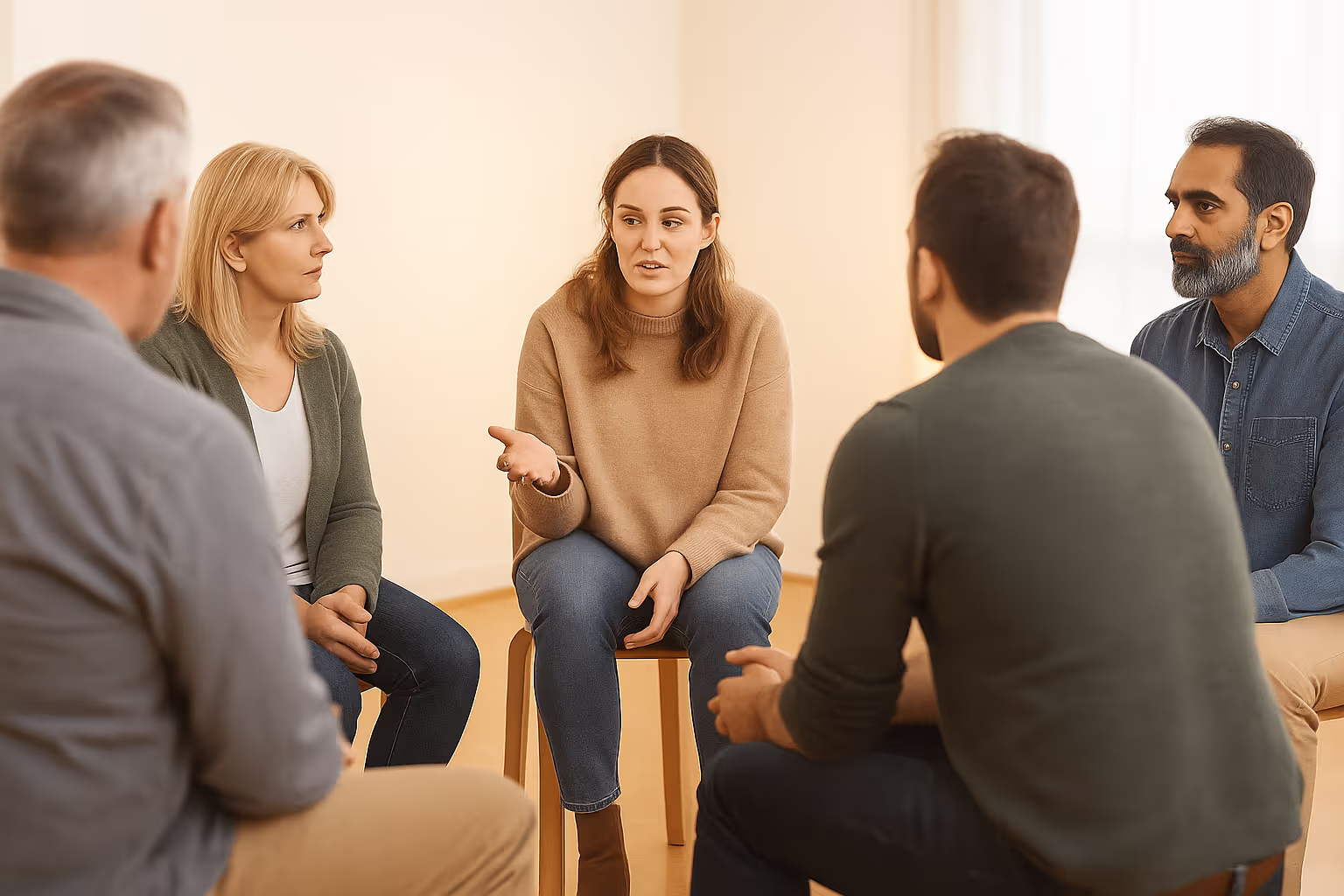




.svg)